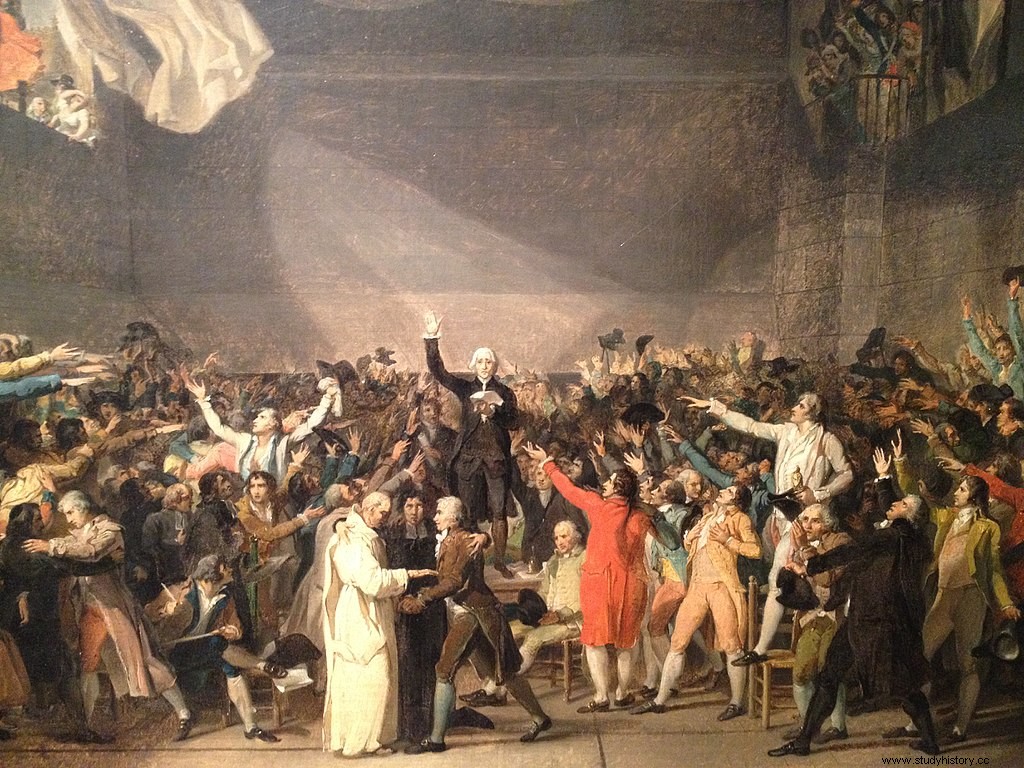- December 17, 1788, convocation of the Estates General by the King.
- From 1788 to 1789, drafting of notebooks of grievances by each order.
- From March to April, election of deputies throughout the kingdom.
- On May 5, Louis XVI summons the Estates General to find solutions to the economic crisis that is eating away at the kingdom. The deputies of the Clergy, the Nobility, and the Third Estate are gathered in the Menus-Plaisirs room.
- On June 17, 1789, following a disagreement concerning the methods of voting (by order or by head), the deputies of the Third Estate proclaimed themselves the National Assembly. This Assembly became “constituent” on July 9, 1789. This greatly displeased the king, who noted that the states general escaped him. The rumor of an intervention of the royal troops is spreading in Paris.
June 20, 1789

Characters
Louis XIV
John Bailly
Abbé Sieyes
Maximilian of Robespierre
Mirabeau
Procedure
The States General Hall having been closed by order of the King, the deputies of the Third Estate, led by Bailly, Deputy for Paris, met in the Jeu de Paume hall on June 20, 1789. There they took an oath pronounced by Bailly:"We swear not to separate until we have given a Constitution to the kingdom" to which his peers reply "We swear it!" »
This act marks the beginning of the Revolution with irreversible impacts, which will continue in the streets several months later. The artist Jacques-Louis David represents the essence of this major scene in the History of France in an unfinished composition developed the year after it took place. It shows us an unprecedented moment of communion.
Consequences
- The Tennis Court Oath is a symbolic event marking the gradual decline of royal authority in favor of the sovereignty of the people represented by the National Assembly.
- On June 23, Louis XVI recalled the principle of absolute monarchy before requesting the evacuation of the room and the deliberation by order. Only the deputies of the Third Estates remain in the room, once again defying the royal authority whose armed troops are ready to intervene.
- On June 27, faced with the unshakeable will of the deputies of the Third Estate, the king agreed to let the three orders draft the constitution together.
